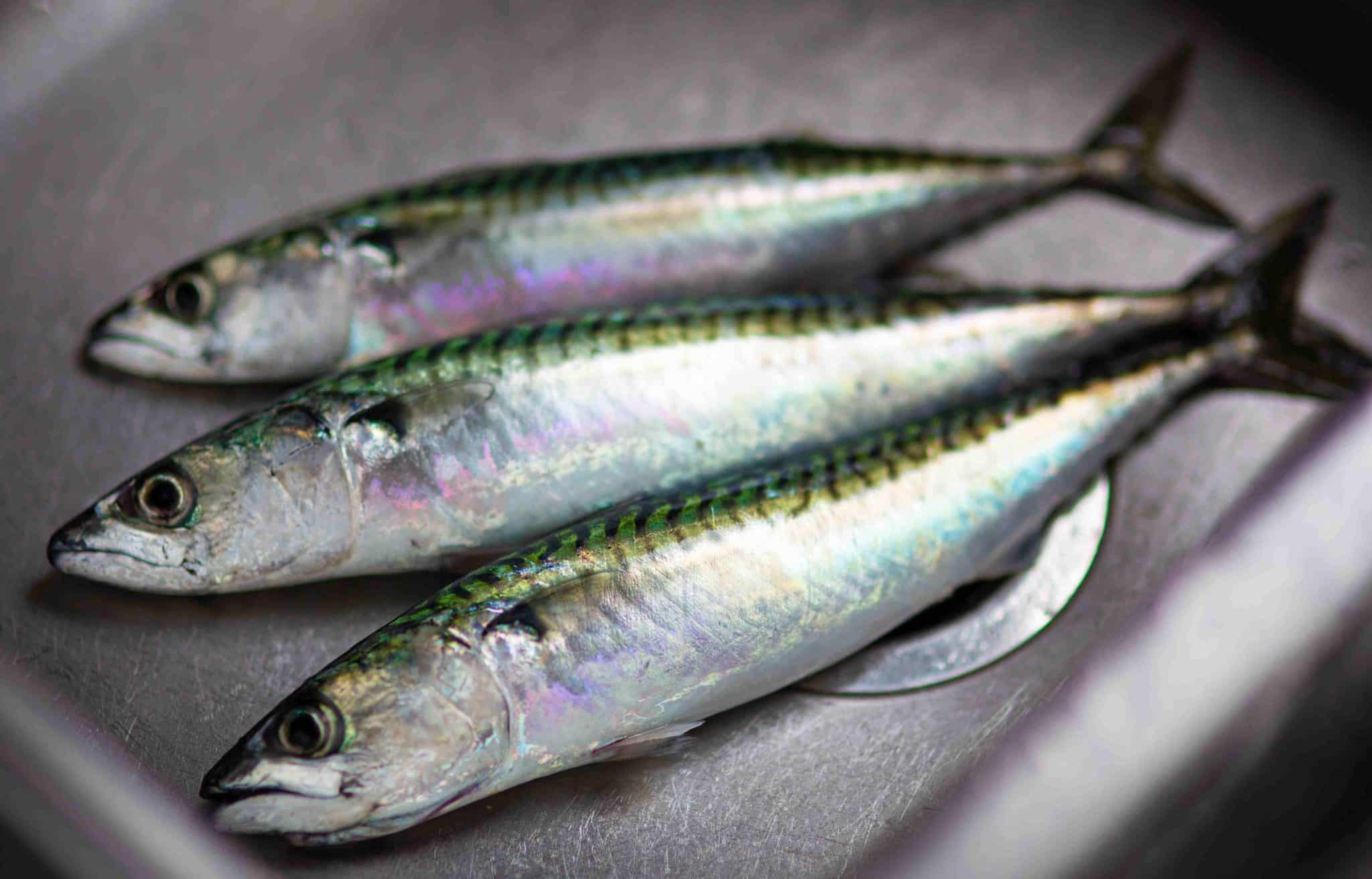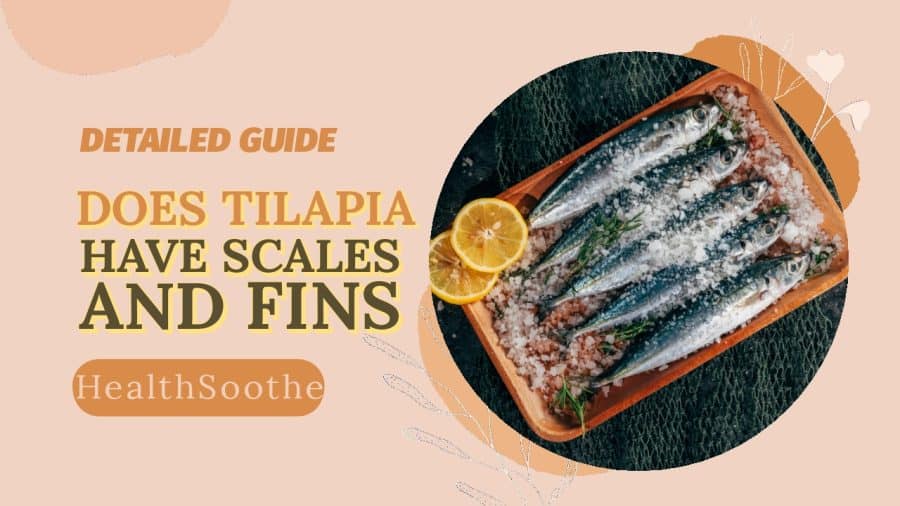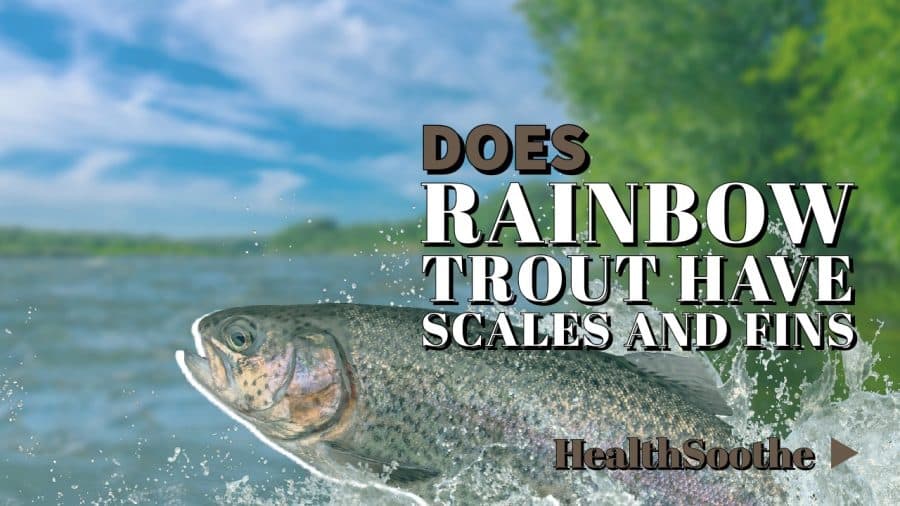Are you a fan of seafood? If so, then you must have heard about sardines!
Quick Facts About Sardine
Sardines are small, oily, and saltwater fish that belong to the herring family. They're usually found in large schools across the Atlantic, Pacific, and Mediterranean oceans.
Sardines are a popular choice for canned food due to their low cost, delicious taste and high nutritional value. But have you ever wondered if they have scales and fins like several other fish do? Then you've come to the right place to get the answer you're looking for.
In this article, we'll answer the burning question lingering in the minds of many curious seafood lovers - Does Sardines Have Scales And Fins? We will also explore some interesting facts about these little fishes that might surprise you.
Does Sardines Have Scales And Fins?
One question that often comes up when discussing sardines is whether they have scales and fins.
The answer to this question is yes! Sardines have both scales and fins just like any other fish. Their scales are typically small, shiny, and they closely overlap each other seamlessly on their skin.
The scales help protect the sardine from predators and other environmental factors that may likely cause harm to the fish, while its fins allow it to swim through the water with ease and precision.
How Many Fins Does a Sardine Have?
Interestingly, each individual sardine has five different types of fins: dorsal fin, anal fin, pectoral fin, pelvic fin and caudal fin.
They have one dorsal fin located on the back, towards the middle of their body. This fin plays a major role in maintaining stability and directional control while swimming.
In addition to the dorsal fin, sardines also have an anal fins, pelvic fins, pectoral fins and caudal (tail) fins. The anal fins are located on the underside of their body towards their tail while the pectoral fins are on either side of the head used for steering and braking. The paired pelvic fins are located closer to the tail for further stability and balance. Also the caudal fin is located at the rear end of their body not too far from the anal fin.
These various sets of fins work together to allow the fish to swim more efficiently through water at high speeds. Their streamlined bodies combined with these five fins make them incredibly agile swimmers that can move quickly in tight spaces without getting stuck or tangled up.

Can You Eat Sardine Fins?
Sardine fins, often overlooked as a part of this tiny fish, can indeed be consumed. In fact, they provide a slightly crunchy texture to your meal that many find enjoyable. When cooked properly, these delicate fins become tender and add an appealing contrast to the soft flesh of the sardines.
Many people might not even notice that they are eating sardine fins when consuming canned or prepared sardines because they tend to blend seamlessly with the rest of the fish's body. This is especially true for smaller-sized sardines where their fins don't stand out significantly in comparison.
Can You Eat Sardines With Its Scales?
Yes! You can eat sardines with their scales on as they pose no harm or threat to your digestive system. However, some people prefer to remove the scales before cooking or eating for aesthetic reasons and texture.
Eating sardines whole, including the bones and skin, provides more nutrients than just consuming the fillets alone.
If you decide to keep the scales on while cooking or eating your sardines, it's essential to clean them thoroughly beforehand properly. This step will ensure that there are no dirt particles or debris left behind before consumption.
Do Sardines Have Bones?
Absolutely, Sardines do have bones, but they are very small and soft. In fact, sardine bones are so small that they can be eaten whole without any negative effects on the consumer who ate it.
The bones in sardines are actually a good source of calcium, which is an essential nutrient for maintaining strong bones and teeth. Eating sardines with their bones intact is also a way to get more nutrition from the fish.
Some people may prefer to eat boneless sardines for convenience or texture purposes, but it's important to note that removing the bones will also remove some of the nutritional benefits that come with the fish.
Can Sardine Survive in a Freshwater Habitat?
While sardines may occasionally be found in saltwater environments, such as oceans and seas, they generally cannot survive in freshwater habitats. This is because they have evolved to live in environments with high salinity levels and require specific conditions to thrive.
One reason why sardines struggle in freshwater is due to the differences in osmotic pressure between saltwater and freshwater environments. Saltwater has a higher concentration of dissolved salts than freshwater does, which can cause water to move out of cells through osmosis if the fish's body isn't adapted to handle it.
Another factor that limits sardine populations from moving into freshwater habitats is competition from other species that are better suited for those environments. Freshwater fish like trout or catfish may outcompete sardines for resources such as food or breeding grounds.
While some individual sardines might be able to survive temporarily in freshwater habitats, some might not at all, because these fish aren't well-adapted for life outside their natural habitat of salty ocean waters.
Can You Eat Sardines Raw?
Sardines are typically consumed cooked, but can you eat them raw? The answer is yes, but it's important to take necessary precautions.
Make sure the sardines are fresh and have been properly stored. Look for clear eyes and shiny skin. If they smell fishy or sour, they may not be safe to eat raw.
It's recommended to freeze the sardines for at least 24 hours before consuming them raw. This will help kill any parasites that may be present in the fish.
When eating sardines raw, it's best to consume them as soon as possible after thawing. Don't let them sit out at room temperature for too long.
Keep in mind that consuming raw seafood always carries some risk of foodborne illness. It's important to weigh the potential risks against the benefits before deciding whether or not to eat sardines raw.
Does Sardines Contain Mercury?
One of the concerns about consuming seafood like sardines is the potential presence of mercury content. Mercury is a toxic heavy metal that can cause harm to the nervous system, particularly in children and pregnant women if consumed in large quantities.
While it's true that some species of fish may contain higher levels of mercury, sardines are considered to be one of the safest options in terms of mercury content. As smaller fish lower on the food chain, they accumulate less mercury than larger predatory fish.
In fact, according to Consumer Reports' analysis, canned light tuna contains almost three times more mercury than canned sardines! So if you're looking for a low-mercury source of omega-3s and other nutrients found in seafood, sardines are definitely worth considering.
While it's been known that sardines contain traces of mercury content, it is recommended that you limit the intake of this type of fish, as eating too much can lead to excessive mercury buildup which can have a negative side effect on your body.
Can You Eat Sardines While Pregnant?
Pregnancy is an exciting time for any woman, but it can also be a confusing one when it comes to what foods are safe to eat. Sardines are a popular choice for many people due to their high nutritional value, but can they be consumed during pregnancy?
The good news is that sardines are generally considered safe to eat while pregnant. In fact, they offer numerous health benefits such as being rich in omega-3 fatty acids which aid with the development of the baby's brain and eyes.
However, it's important to note that pregnant women should avoid consuming raw or under-cooked sardines as they may contain harmful bacteria or parasites. It's recommended to always cook sardines thoroughly before consumption and must be eaten in moderation alongside other nutritious foods.
Also, pregnant women should limit their intake of fish high in mercury such as mackerel and swordfish. Sardines have low levels of mercury making them a safer option for expectant mothers.
What are the Health Benefits of Eating Sardine?
There are many reasons why you should consider including sardines in your diet. These small but mighty fish are packed with nutrients that can provide you numerous health benefits.
- Sardines contain high levels of omega-3 fatty acids which have been linked to reducing inflammation, improving heart health and cognitive function. Omega-3s also play an important role in supporting healthy brain development and preventing mental disorders such as depression.
- Sardines also contain high levels of vitamin D, which helps the body absorb calcium and maintain strong bones and teeth. In fact, just one serving of sardines provides over half of your daily recommended intake of this essential vitamin.
- Also, these little fish are packed with protein that supports muscle growth and repair. This is crucial for athletes or anyone engaging in regular exercise routines.
- Sardines provide important minerals such as phosphorus which aids digestion while maintaining strong teeth and bones. Sardine consumption has also been associated with reducing the risk of certain cancers like breast cancer due to its anti-inflammatory properties.
Why are Sardines so Cheap?
You might be wondering why sardines are so cheap in spite of their numerous health benefits? Well, compared to other fish species, sardines are relatively small and abundant. This makes them easier to catch and transport, thereby reducing their production costs.
Another reason why sardines are cheap is that they have a short shelf life. It means that they need to be sold quickly after being caught, or else they will spoil. Since demand for fresh sardines may not always be high, sellers often sell them at lower prices to avoid losses due to spoilage.
Also, unlike some other popular fish options like salmon or tuna, sardines do not require much processing before being sold as food. They can be canned or prepared fresh without requiring any additional steps such as skinning or filleting.
Are Sardines Kosher?
Sardines are a popular fish species consumed by many people worldwide. But for those who follow Jewish dietary laws, the question arises: Are Sardines Kosher?
According to Jewish law, to be considered kosher, fish must have fins and scales. Luckily, sardines do meet these requirements as they possess both fins and scales. Therefore, sardines can be included in a kosher diet.
Frequently Asked Questions about Sardines
Are sardines high in mercury?
Sardines are generally considered low in mercury compared to larger seafood options like tuna or swordfish.
How long do canned sardines last?
Canned sardines can last for up to 5 years if stored properly in a cool, dry place.
Do all species of sardines have scales and fins?
Yes, all species of true sardines have scales and fins. These features help them swim efficiently and quickly through the water.
Are there any vegan alternatives to eating sardines for Omega-3s?
Plant-based sources of Omega-3s include chia seeds, flaxseeds, hemp seeds, walnuts and algae supplements.
How many calories are in a can of sardines?
A typical can of sardines contains around 200-250 calories, depending on the brand and type. However, most of these calories come from healthy fats and protein rather than unhealthy carbs or sugars.
Are canned sardines as nutritious as fresh ones?
Yes! In fact, some studies suggest that canned sardines may actually be more nutritious than fresh ones because they're packed with omega-3 fatty acids and other beneficial nutrients that tend to degrade quickly after fish is caught.
Can you eat the bones in canned sardines?
Absolutely! The small bones in canned sardines are safe to eat and actually provide a good source of calcium. You might not even notice them since they're quite soft and easy to chew. However, some people may prefer to remove them before consuming.
What is the largest species of sardines?
Conclusion
I hope we've been able to clear the misconception on whether or not sardines do have scales and fins.
These fish are surprisingly low in cost and contain several nutrients such as omega-3 fatty acid content, protein, vitamins, and minerals, making it an excellent choice for those who want to eat a healthy meal or snack without spending much.
It also contains low mercury content making it really safe to eat for anyone, especially pregnant or nursing mothers. But as with all seafood, moderation is the key. Eating too much can lead to the buildup of mercury contaminants which can have an adverse effect on the human body.
So next time you're at the store trying to get some foodstuffs, don't forget to pick up some sardines too. Trust me, you won't regret it


